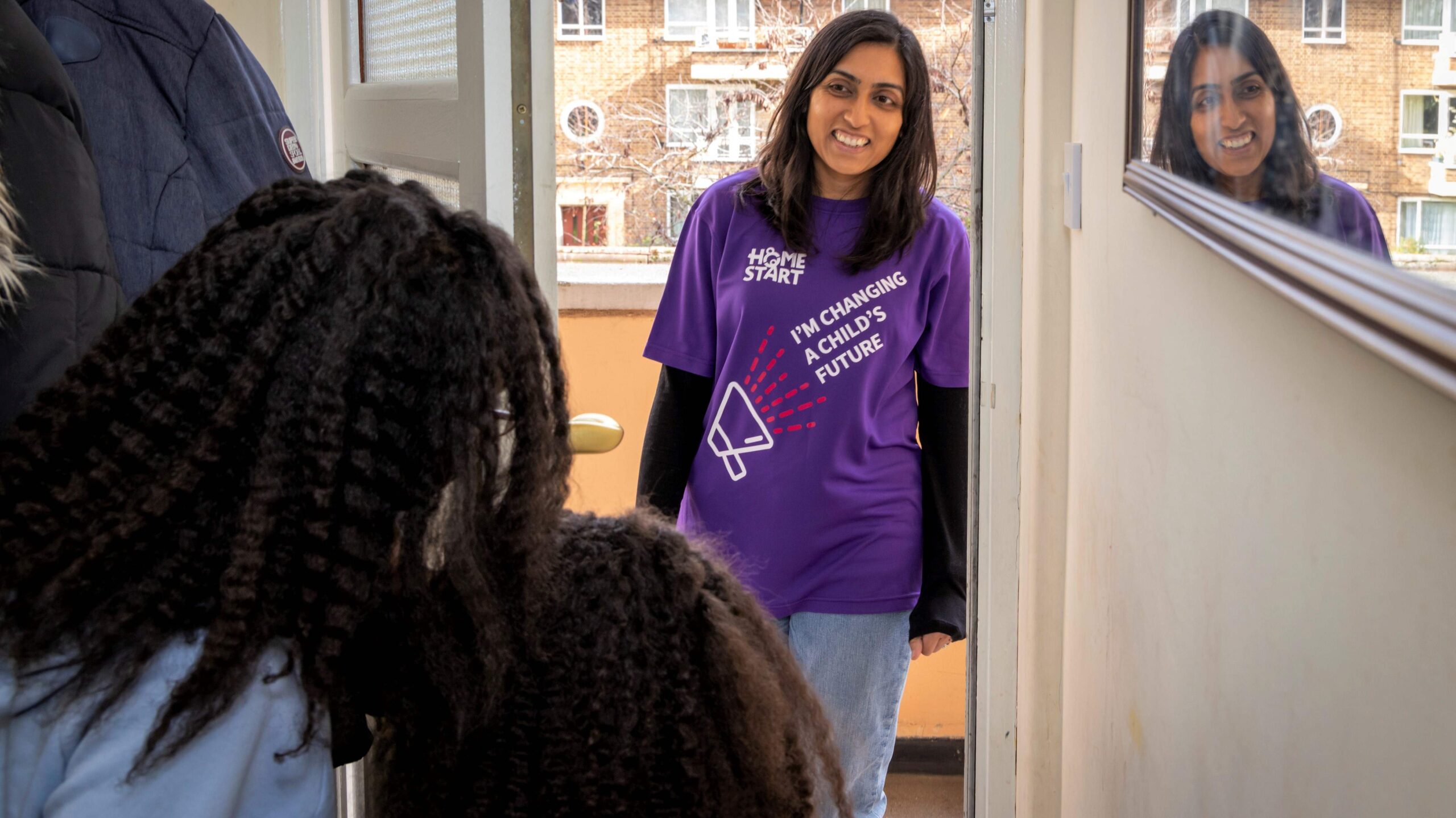The collaboration between The Royal Navy & Royal Marines Charity (RNRMC) and Home-Start UK represents a vital initiative to support dispersed military families.
Parenthood, in general, can be incredibly demanding, but for those in the armed forces community, the stresses of family life can be even more intense due to factors such as deployment, separation, and the unpredictability of military schedules.
With support from RNRMC funding, Home-Start is helping families by pairing them with trained volunteers who offer in-home support and guidance. These volunteers provide a listening ear, a friendly face, and practical help with everyday tasks, whether it’s helping with the children, assisting with household chores, or just offering companionship during difficult times. For military families, especially those where one parent is deployed, this kind of support can be transformative.
An example of one such transformation can be found with Jo* and her family (3-year-old Evie* and baby Ethan*) who benefited significantly from the compassionate support provided by Home-Start Angus coordinator, Fay.
(*Names changed to protect the beneficiaries’ identities)
Jo’s partner is in the Royal Marines and away from home, and Jo had no family or friends living locally. She worked 22 miles away and only knew people from work.
At the time of referral, Jo had a 2-year-old and a new baby due in 3-months. Fay carried out an initial visit with Jo, who shared that, in addition to her partner being a Royal Marine and currently working in an area of conflict, with limited access to communication, his mental health was causing concern.
Jo’s partner was not making contact even when able to and had basically withdrawn from family life. Jo had no idea when he would get home and/or for how long.
Not knowing anyone nearby and having to get Evie to nursery, a 44 mile round trip each day – Jo then went on maternity leave, she felt entirely alone and scared as to how things would work out.
Jo described her own emotional health as being at rock bottom. Evie continuously asked, “when is daddy coming home?” and would cry due to his absence. Evie would also ask “is mummy going to leave me?”, “please mummy don’t leave me”. This would cause further distress to Jo, who would attempt to alleviate Evie’s stress.
The new baby, Ethan, arrived as planned. Jo’s partner had been expected to be able to be home for a few weeks around the time of birth but had recently told her that he would now only get a few days off to be at home. Her partner did arrive home, but Jo felt so uncertain as to whether this would happen that she only told Evie an hour before his anticipated arrival.
Evie sat at the door asking, “is daddy really coming home?”. Once he arrived, she exclaimed “daddy really came. Will daddy leave me again?”. Jo’s partner was unable to show Jo any emotional support and showed no interest in baby Ethan.
He did play with Evie and appeared to enjoy spending time with her. He stayed home for 2-weeks then had to return to work, in another nation.
Initially, Evie was not used to visitors to the home so took a while to adjust to Fay’s visits. By the time of Ethan’s birth, Home-Start Angus had built up a relationship of support. Jo asked if this could be an evening visit as that was the time she found most difficult.
Fay then introduced a volunteer, Jane, to the family after Ethan arrived. Fay and Jane now take turns to visit the family on a Wednesday and Thursday evening. Evie (now 3 years old) is ready and waiting for her ‘friends’ to arrive, with games picked out, hairbrushes and clasps to “do Fay’s hair” and books ready for Jane to read to her. These visits allow Jo time to bathe Ethan, knowing that Evie is happy and occupied.
Fay and Jane then take care of Ethan, allowing Jo dedicated time to spend with Evie, bathing her, playing with her and just allowing her to have some ‘mummy’ time.
Jo’s partner is currently on 12-hour notice and therefore unable to travel home. Jo, Evie and Ethan don’t know when they’ll see him again, but Jo credits Fay and Jane with helping to get her through the most difficult period in her life to date.
Jo saw no way to get through the challenges she faced towards the end of her pregnancy. She now copes well on a day-to-day basis but says she lives for a Wednesday and a Thursday when she knows she will have that extra pair of hands, and some emotional support for a couple of hours.
While this is one example of the help Home-Start can give, the RNRMC also funds several Home-Starts near bases around the country, some of whom offer online support wherever you live.
Please don’t be alone, we invite you to visit our website or check out our social media for more support offers.

